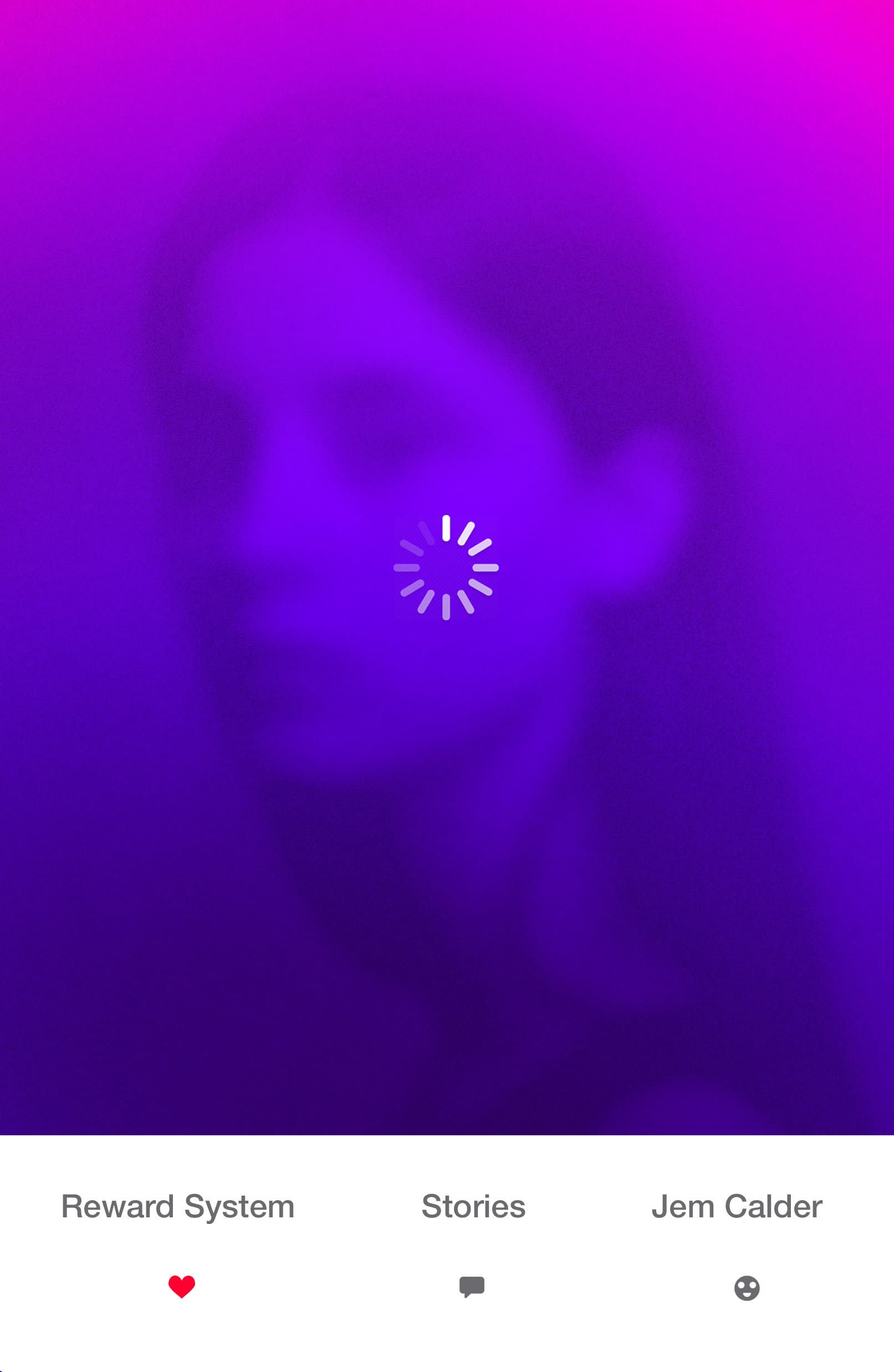No gift registry found click here to create new registry
Cart contain Gift Registry Items cannot add products
Reward System
24.00 JOD
Please allow 2 – 5 weeks for delivery of this item
Add to Gift RegistryDescription
Named a Best Book of the Year by The Guardian ● Esquire ● The White Review ● NPRJem Calder’s Reward System is a set of ultra-contemporary and electrifyingly fresh fictions about a generation on the cusp, enmeshed in Zooms and lockdowns, loneliness and love. Audacious fictions for a generation wondering: What now?Julia has landed a fresh start at an up-and-coming city restaurant.”Imagine that,” says her mother.”I’m imagining.”Her ex-boyfriend Nick is flirting with sobriety and nobody else. Did you know that adults his age are more likely to live with their parents than with a romantic partner?Life should have started to take shape by now—but instead we’re trying on new versions of ourselves, swiping left and right, searching for a good answer to the question “What do you do?”
Additional information
| Weight | 0.42 kg |
|---|---|
| Dimensions | 2.65 × 14.71 × 21.72 cm |
| PubliCanadation City/Country | Canada |
| Author(s) | |
| Format | |
| language1 | |
| Pages | 304 |
| Publisher | |
| Year Published | 2022-7-19 |
| Imprint | |
| ISBN 10 | 1039004830 |
| About The Author | Jem Calder was born in Cambridge, and lives and works in London. His first two completed stories were published in The Stinging Fly and Granta. |
“Reward System is an exhilarating and beautiful book by an extraordinarily gifted writer. Reading these stories, I found myself thinking newly and differently about contemporary life.” —Sally Rooney “Remarkably fresh . . . Calder's writing achieves that rare thing of capturing how it feels to be young without merely cataloguing millennial clichés.” ―Esquire, Best Books of 2022“Calder is a superb writer, by turns funny, graceful, acidly cynical, lyrical – and always verbally dexterous and inventive. . . he can also write simply and beautifully, with a keen eye for the natural world and human behaviour.” ―The Guardian (UK)“Brilliant, compelling, and defiantly authentic. . . . Throughout these half-dozen stories, [Calder] masters a kind of maximal minimalism, piling on details and allusions while striping away illusions. Imagine a slightly less coy Sally Rooney paired with a highly perceptive alien, with strangely illuminating results. . . . [Calder] savvily marshals buzzy facts and newsy concepts in service of an atmosphere rich with the irony (and pollutants) of modern living . . . moving the conversation forward—into realms that feel simultaneously darker and (in tiny, essential ways) more hopeful.” —The Los Angeles Times “Calder’s balanced prose has an eerie effect on the stories, as though the algorithm had begun colonizing the writing as well. . . . In [his] penetrating depiction, there is no discontent brought about by the smartphone that the smartphone can’t also distract us from thinking about.” —The Wall Street Journal“Calder . . . transforms an ordinary observation into something greater . . . illustrat[ing] the isolation of technology and the melancholy of youth.” —Chicago Review of Books“Calder debuts with a sharp collection . . . the choice to stretch out the narrative across several stories . . . leaves room for Calder’s insightful observations on the nature of romance and friendship in the age of right swipes and perfectly curated Instagram grids. There’s plenty to dig into.” ―Publishers Weekly“A remarkable debut. . . . Jem Calder’s insightful, deeply intelligent stories are full of subtle humor and quiet sorrow.” —Star Tribune“The stories in Reward System are intelligent, cool and sharp. Jem Calder is a real find.” —Nicole Flattery author of Show Them a Good Time“Jem Calder is my favourite new writer, or my new favourite writer, I can't decide which, and his book Reward System is the best debut by a British fiction writer in years. If you've been waiting for someone to close the gap on social distancing, to capture the furtive problems of social media, to make you laugh at your own alienation, to wrap your mind around the narcissism of small differences, then Calder is your new best friend and his debut collection is the must-read book of the year.” —Andrew O'Hagan, author of Mayflies“A crushing and clear-sighted portrayal of people dodging the alienation of work, money and life's digital shorelines, told through short scenes so brilliantly observed I felt the reality of a generation in every detail.” —Holly Pester author of Cosmic Timing |
|
| Excerpt From Book | Search Engine Optimisation Six white males between the ages of twenty-seven and fifty-five are seated in a room. Their Friday late-morning conference call is over, but it is too early to be reasonably lunch.In front of each male – on the laminate, anti-fingerprint surface of the room’s central table – is a photocopied, spiralbound copy of the same presentation as is currently being overhead-projected from one of the six’s laptops onto a matte canvas screen affixed to the narrower and windowless of the room’s two load-bearing walls. (The room’s two non-load-bearing walls are frosted-glass internal partitions, through which only the males’ beclouded outlines are visible to the rest of the office.) The males – ranked, here, ascendingly by value of height – are: 5. Perry Avery; 4. Sean Townsend; 3. Fred Honey and Ray Bannon (tied); 2. Matt Maynard; and 1. Chris Newland.Sean Townsend, ordinarily the first teammate to enliven a post-meeting silence, dedicates the entirety of his executive function toward fabricating something funny to say.Chris Newland sneezes thrice in quick succession; Matt Maynard blesses him once.Ray Bannon – who today wears a tongue-coloured chambray shirt that Perry Avery cannot quite keep his eyes off – says to no one in particular, ‘Did you hear today’s Ontkean’s last day?’Although he seldom thinks about Henry Ontkean, for Fred Honey, the act of resignation confers a kind of heroism onto the resignee; he finds himself admiring Ontkean for getting out of here. ‘Good for him. Did we hire a replacement yet?‘Some woman, but she withdrew her application already,’ Maynard says. ‘Had an issue, familyside.’Townsend’s mind releases a joke: ‘Ontkean’s leaving? Big shoes to fill.’Five of the males, including Townsend himself, laugh at this witticism. Honey, the lone unlaugher, wears a problem-solving face.Bannon goes: ‘He certainly has a large personality.’Townsend leans back, tipping his black plastic chair onto its hind legs. ‘You could say he’ll leave a jumbo-sized dent in the—’‘Where’s he headed?’ Honey says.‘Ontkean?’ Maynard says. ‘Hasn’t said. Well, haven’t asked.’Newland fingers the access lanyard that hangs about his neck; every new starter in the building gets one, but no one else actually wears theirs. ‘I think I heard’ – he looks around the room for a second before failing to articulate the following straight-facedly – ‘he got headhunted for a tasting job at the M&M’s store.’More group laughter. (In a far corner of the room stands a tall, maybe perennial indoor plant; hard to say, from this distance, whether it’s fake or real – Honey cannot recall, with any certainty, ever having seen it being watered; he’s attended Friday-morning meetings for two years now and is unsure if the plant has grown at all in that time.) ‘Alright,’ Honey says, ‘c’mon,’ and the laughs peter out.‘Ontkean’s been here eleven years,’ Bannon says.Maynard echoes, ‘Eleven years’; shakes his head.Avery says, ‘I joined here eight years ago. I was twentyfive. Wasn’t married. Didn’t have kids.’ Four of the six males who aren’t Honey or Townsend bite the insides of their cheeks/lips and/or nod sagely. Each of these four meditates briefly on the sailing by of time; pictures the face of a different woman.Townsend – who landed this job out of nepotism and has never worked anywhere else – has another funny thought. He addresses Avery specifically but plays to the room at large: ‘You started here eight years ago and you’ve been trying to leave for seven.’More five-headed laughter, then a recap of open issues and executable actions, outcomes from today’s call; most urgently, amendments must be made to Avery’s presentation deck before it gets sent to the client.Bannon and Maynard segue into their weekly-recurrent duologue about the possibility of streamlining the firm’s approach to project sign-off, which always bottlenecks where senior creative is involved. As this discussion draws out, Townsend yawns and – seeing him yawn – Honey yawns.Signalling that the meeting is finally adjourned, Avery stands and circles the table, collecting together the presentation printouts he laid out earlier; the colour of that shirt, my god, he thinks, as he passes Bannon by.Newland rises and says something about there being Danishes in the break area, then the rest of the males rise. The sextet leaves the room and soon disbands. In a blank, unsealed, C4-sized envelope, Henry Ontkean’s A4-sized novelty leaving card has been placed on Fred Honey’s desk for him to sign. The card is printed on non-premium stock paper and features, on its front, a typographic design that contains multiple swears and also the word ‘Henry’ – probably it was artworked internally. Honey opens the card and skims the messages already handwritten therein: ‘You’ll be missed’; ‘All best for the future’; ‘A pleasure working with you.’ Honey uncaps a ballpoint pen and writes ‘Keep in touch’ in an empty corner of the card, followed by his initials. Written down – and surrounded by so much free space – the message reads as excessively formal, soulless. He considers drawing a smiley face after the word ‘touch’, but doesn’t. He reinserts the card into the envelope, which he deposits on Chloe Daley’s desk. ‘What’s the meaning of this?’ Chloe Daley says, smiling toward the end of her sentence. ‘Just a love letter, Chloe,’ Fred Honey says, standing over her as she sits. ‘Finally.’ Honey picks up and revolutes a few times the promotional, conference-branded fidget spinner Daley keeps on her desk. ‘What’re you doing?’ ‘Working,’ Daley says. ‘Are you distractible?’ ‘Kind of busy.’ ‘Lunch soon?’ For non-executive staff, Friday means dress-down; Daley wears a pre-faded maroon graphic tee with a generic surf-related slogan screen-printed on it. ‘Yeah, but probably right here,’ she says, an index finger referring downwardly to her workstation. ‘Smoking today?’ ‘Mabes,’ she says, ‘I’m down to, like, five a week.’ ‘Well,’ Honey says, setting the spinner down as its weighted lobes lose momentum and cease blurring together, ‘come grab me if you’re still addicted after lunch.’ Because she is so pretty, Chloe Daley has the power to enter people’s dreams. Fred Honey selects the last remaining cherry-jam Danish from an opened carton of Costco pastries, its cellophane veil now completely shed. A Post-it affixed to the wall behind the carton reads: ‘My treat, enjoy. – Henry.’ The Danish has staled in the air-conditioned air. Eating it, Honey settles into a preferred fantasy of his last day here. He will bring in a Krispy Kreme premium non-ring dozen with personalised raspberry-glaze lettering that reads ‘FUCK YOU ALL’ across the individual doughnuts – twelve exact characters including spaces. Several feet away from him, a sleepy-looking Nick Dwyer is reheating leftovers in the break area microwave. ‘Hi Nick,’ Honey says, around a mouthful of pastry shards. ‘Weekend plans?’ Dwyer has not spoken for so long today his lips have stuck together. After a second: ‘I think I’m just— Yeah. I have some stuff— Going on. How about you?’ The microwave knells; from it, Dwyer removes an unlidded Tupperware containing a cuboid, cross-sectional slice of lasagne. ‘This and that,’ Honey says. ‘Have you signed Henry’s leaving card?’ ‘No, but I will,’ Dwyer says, ‘forthwith,’ awkward and tryhard; the way he talks embarrasses them both. ‘Well.’ He holds up and shakes his lunch – which he always eats early and alone – and says, in this painstakingly cheerful way, ‘Have a good one, Fred.’ For the first time in human history, no person has to think their own thoughts if they don’t want to. Technology has opened new slots in the world through which instant, substanceless, distractive relief is accessible to the consumer at any moment. Anyone you talk to is simultaneously half-present in a more entertaining, disembodied social space that exists in an onscreen tangent-reality. Meanwhile, interactions that occur between persons in physical, non-virtual space feel increasingly overburdened with a diffuse anxiety directly counter-related to the highly optimised ease of use of tech-mediated communication. The more we interact across screens, the rarer and less bearable our face-to-face interactions are becoming. Or, at least, that’s how Nick Dwyer feels. Kate Batchelder shuffles together a loose sheaf of papers on her desk; like a newscaster, knocks them into an even-sided stack. That’s that, she thinks, definitive, all her morning’s tasks completed, that’s that. She thinks it again several more times as she carries the papers over to the paper shredder; enjoys the looping, ouroboric logic of the phrase: That’s that that’s that that’s that. Already operating the shredder when she reaches the print room is Chris Newland. ‘Hey Chris,’ Batchelder says, which goes unheard beneath the shredder’s industrial whirring. She feels like she’s standing too close behind him, so retreats enough backsteps to where she’s leaning up against a wall. Newland’s deep focus on the act of inserting paper into the shredder’s maw has relaxed all the muscles in his face. After he finishes feeding in one document, he withdraws another from a ring-bound binder labelled ‘SHREDDABLE’ and loads it into the machine. He flinches hard when, eventually, he becomes aware of Batchelder’s presence. ‘Jesus. Sorry, Kate. Didn’t see you there. Be one minute.’ ‘Take your time,’ Batchelder says. But Newland being Newland, he starts rushing and, within moments, he’s overloaded the shredder by forcing a too-thick batch of papers into its entry port. On the shredder’s frontal console, an LED that usually glows solid green now starts blinking red. ‘Hell on earth,’ Newland says to himself; the formerly relaxed muscles of his face all tightening. He attempts to manually unjam the wad of papers, but the shredder is uncooperative. ‘So. Impractical,’ he says – long pause between the words. It takes Batchelder a second to think to offer to do something. ‘Should I go fetch Gigi from downstairs?’ Newland grunts bisyllabically (‘Nnn-mmm’), his face magenta-ing as he wrangles with the stuck sheets of paper, some of which tear apart in his hands. Batchelder knows better than to offer reasonable advice to someone who is still in the commencement phase of getting annoyed. Even so, she says: ‘Let me quickly run and get Gigi, he can always—’ ‘I know I can fix this,’ Newland says, his voice shading hostile, ‘I just can’t do it with you standing there watching me.’ |
Only logged in customers who have purchased this product may leave a review.
Related products
-
On backorder 2-5 Weeks to Arrive
Add to Gift Registry -
On backorder 2-5 Weeks to Arrive
Add to Gift Registry -
On backorder 2-5 Weeks to Arrive
Add to Gift Registry13.00 JOD -
On backorder 2-5 Weeks to Arrive
Add to Gift Registry






Reviews
There are no reviews yet.